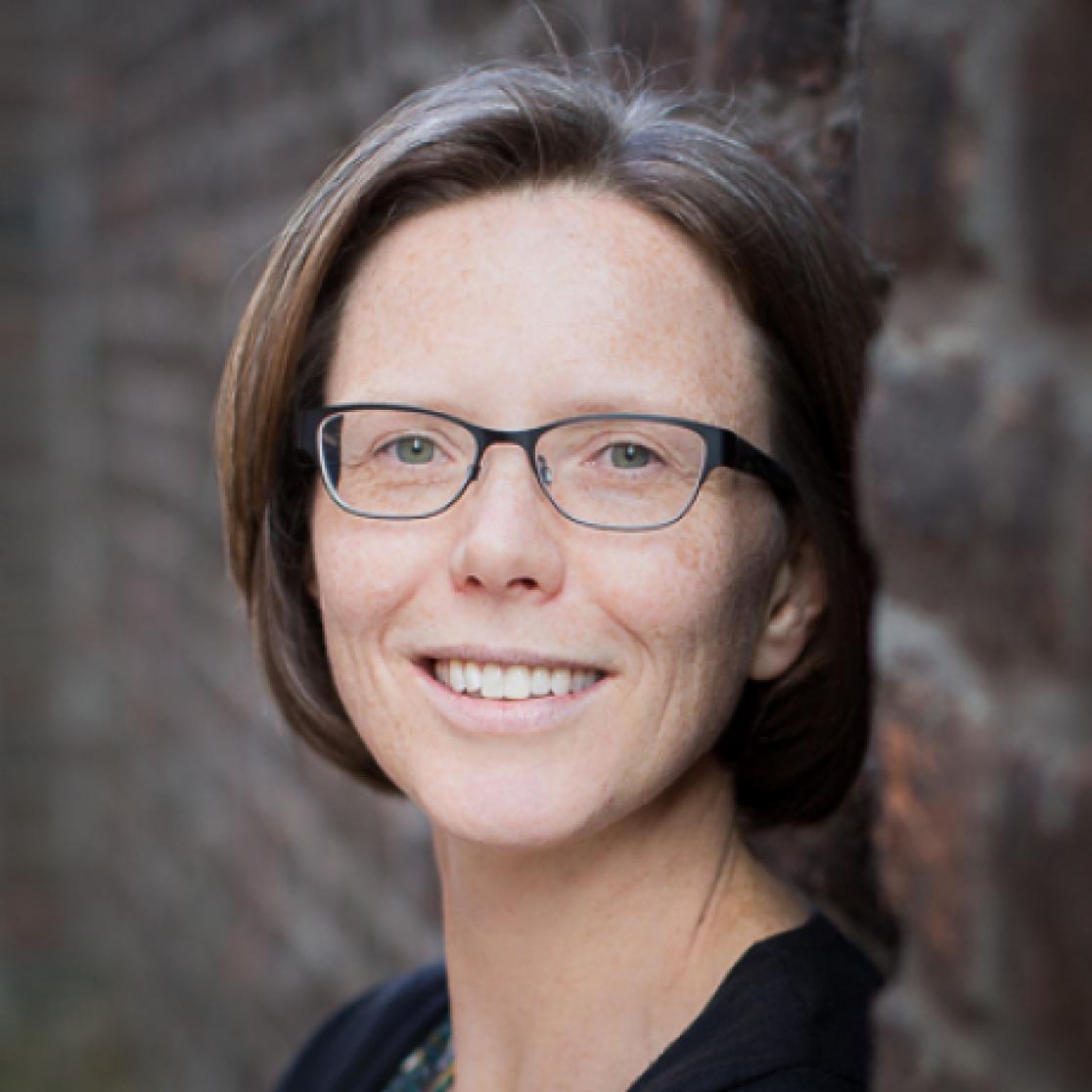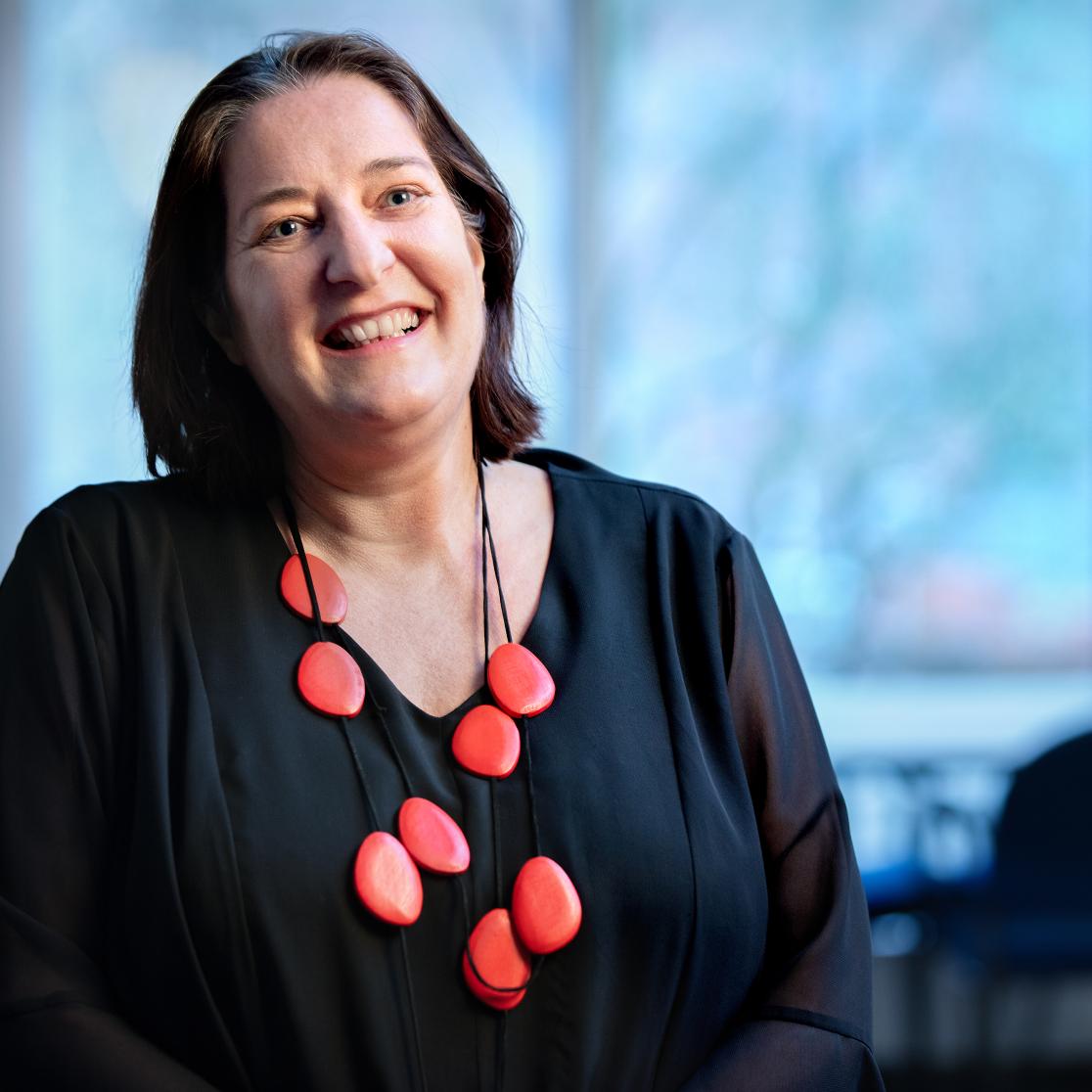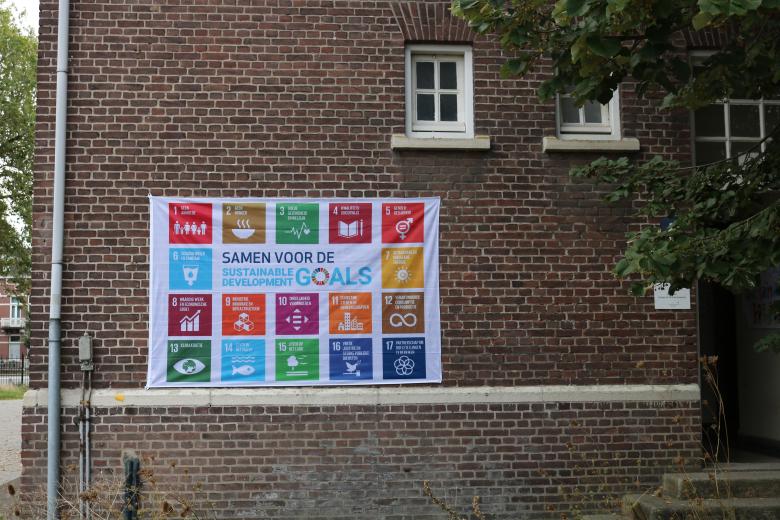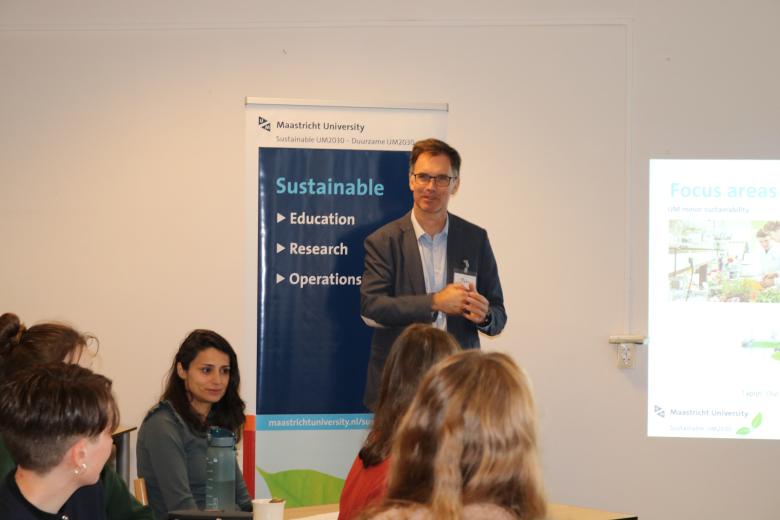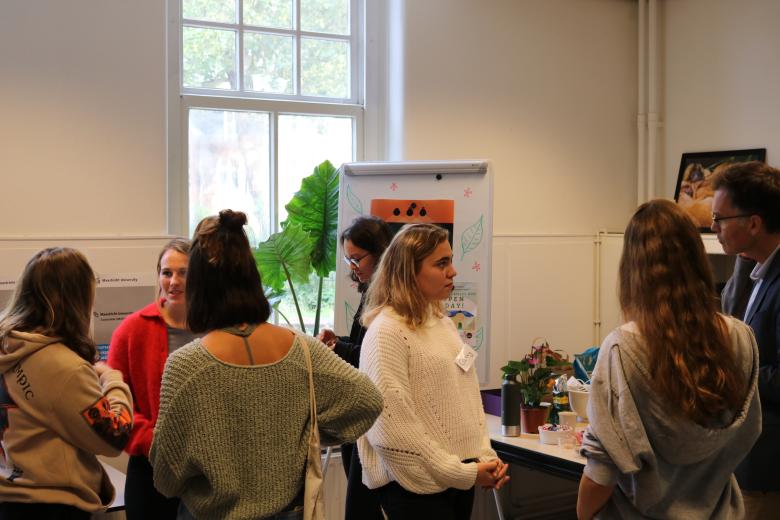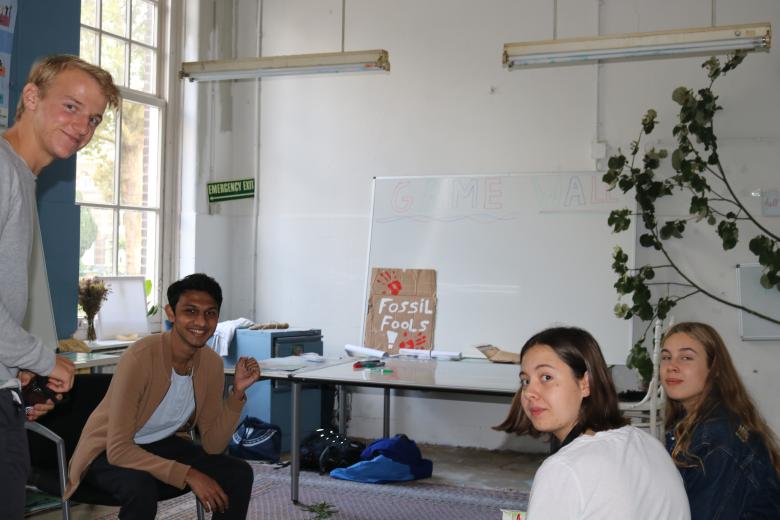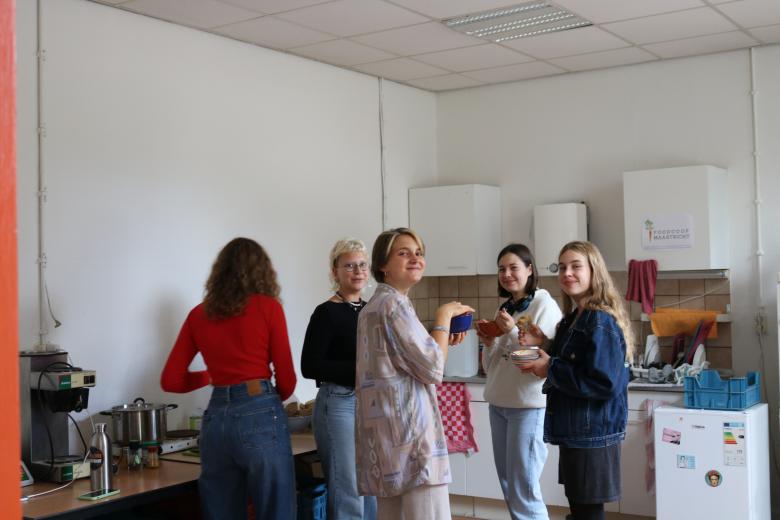We are deeply saddened by the passing away on September 16th of our dear colleague and beloved friend Amanda Kaas, after a short but intense illness. She was an associate professor at the Cognitive Neuroscience Department at the Faculty of Psychology and Neuroscience. An intimate circle of family and friends said their farewells to Amanda on September 24th. Our thoughts go out to her husband and three young children, her family, and all who were close to her. She was an exceptionally gifted scientist, a dedicated teacher, and an empathic mentor to many students, lab members and colleagues. From everything she did spoke positivity and a zest for life, and we will greatly miss her.
Amanda was the kindest person imaginable. Ever helpful, empathic, and passionate about life and science, she always had time to listen and provide counseling and ideas to solve issues, which she offered with her typical warm “Amanda-Smile”. Conversations with Amanda were joyful and full of laughter, but also serious when needed.
Many will also remember her outstanding teaching and supervision of students across all academic layers. As Mentor and Master Internship coordinator, she was an anchor point for students who planned internships abroad, especially during the times of the COVID-19 pandemic.
Amanda knew well what she wanted in science. She was smart and creative, and conducted science and held presentations about her work at the highest international level in her field of Psychology and Brain Science. She was always enthusiastic about her ongoing research, and full of plans for new projects and new collaborations. Amanda was strong-minded in her goals and ambitions, yet very modest about her countless achievements.
With a focus on sensory perception and pain, Amanda’s research occupied a crucial place in the Cognitive Neuroscience Department. With her research, she attracted collaborations from within the department and beyond, from students and PhD candidates to established scientists. Her research interests were rooted in her Bachelor in Psychology studies in Leiden and in her Master training at the Faculty of Science at the University of Amsterdam, where she followed the specialisation “Quantitative Psychology and Psychonomics”. Already during her Master training, she understood that a deep understanding of the complex relationships between the human brain and human behaviour requires mathematical skill. Therefore, she took a Minor in Mathematics “Dynamical systems and Modeling” during her Master training at the University of Amsterdam. This choice reveals also one of Amanda’s core character traits: throughout her life, she always translated the identification of meaningful challenges into enthusiasm and action.
In 2001, Amanda was discovered by the Cognitive Neuroscience Department, and started her PhD research in December of the same year, under supervision of dr. Hanneke van Mier and prof. dr. Rainer Goebel. She received her PhD in 2006 with an excellent thesis, entitled “The neural and behavioural bases of active touch and tactile working memory”. Most of the fMRI scanning related to her project had to be done remotely at the Donders Institute in Nijmegen, which posed all kinds of logistical and planning challenges. This however did not delay her project, due to Amanda’s truly remarkable organizational skills. Her projects required MRI compatible equipment to deliver somatosensory stimuli, which she designed herself with great precision. This elicited admiration from the staff at the Instrumentation Department with whom she collaborated to implement her ideas. When asked where she got these practical, logistical and organizational skills, and her taste for precision, she would smile, and credit her minor in mathematics.
During her postdoctoral years from 2006 to 2012, Amanda did much appreciated work, first on the neural correlates of imagined motion at the Max Planck Institute for Brain Research (Frankfurt, Germany), and subsequently on fMRI brain-computer interfaces and somatosensory plasticity upon her return to the Department of Cognitive Neuroscience. In 2012, her expertise was recognized by a Project Coordinatorship in the BrainGain Consortium research program, in which human participants received training to self-modify their brain activity, with the ultimate aim to reduce specific forms of brain activity associated with psychopathology. Amanda’s postdoctoral research hence showed not only fundamental rigor, but also a growing applied orientation. This spoke to Amanda’s strong motivation to give back to society through her research.
Amanda was appointed as an assistant professor at the Department of Cognitive Neuroscience (FPN) in 2013. During that appointment, she worked passionately to develop her own research lines in somatosensory perception and pain. Amanda was a true pioneer in setting up these novel research lines, and worked incessantly to overcome technological hurdles and to acquire funding. She built her own group as a PI (the SOPA lab) with several PhD candidates and postdocs, some of whom have since moved on to prestigious scientific positions themselves. Amanda mentored her group with her characteristic patience and empathy, and supervised her students and postdocs to influential publications and theses in the fields of somatosensory perception and pain. Most recently, she had started forming a broad Dutch consortium with the goal of finding better biomarkers for arm/hand paralysis after stroke with the ultimate aim of developing more accurate predictive modeling of recovery potential and determining the best personalized treatment. In these efforts, she reinforced her strong profile of performing science that was fundamentally oriented, yet offered at the same time a perspective to improve the quality of human lives. Her impressive achievements earned her a recent promotion to Associate Professor. Amanda was also engaged in helping to make the process of doing science better. She was strongly involved in promoting Open Science and Open Access publishing, and became FPN’s ambassador for the Open Science Community Maastricht.
But what made Amanda truly a role model was how she balanced a successful science career with her role as a loving mom and devoted partner in a young family with three children. Her wisdom and passion for all aspects of life that she held so dear, lights a path forward for all young parents in combining research, teaching, and family. She always made time for others, and for the things she felt were valuable in life.
Amanda was also a gifted singer, and she happily shared her gift on many occasions. Her singing revealed joy, humor, but also compassion and a strong sense of justice. Above all, the way Amanda sang tells us how much she loved life, as captured in her passionate rendition of “Gracias a la Vida” (Violetta Parra), which is a song she adored. And when things got difficult for herself or others, her wise view on life always offered a perspective to give things a proper place, which she shared with her warm and understanding smile.
Amanda, your smile will always be with us. We will not forget you.
